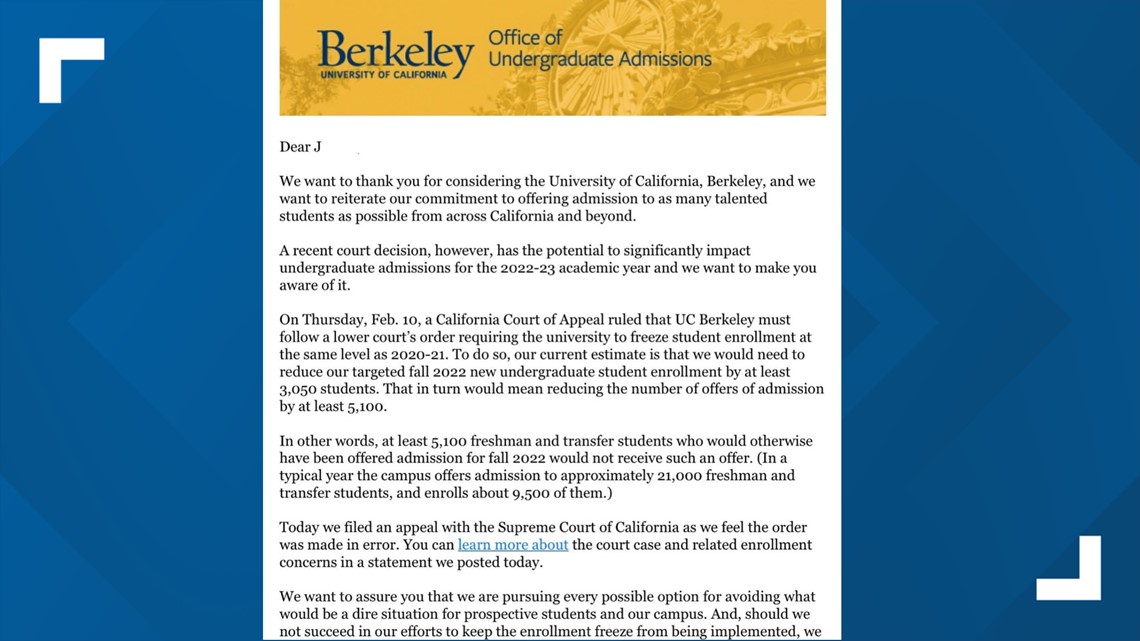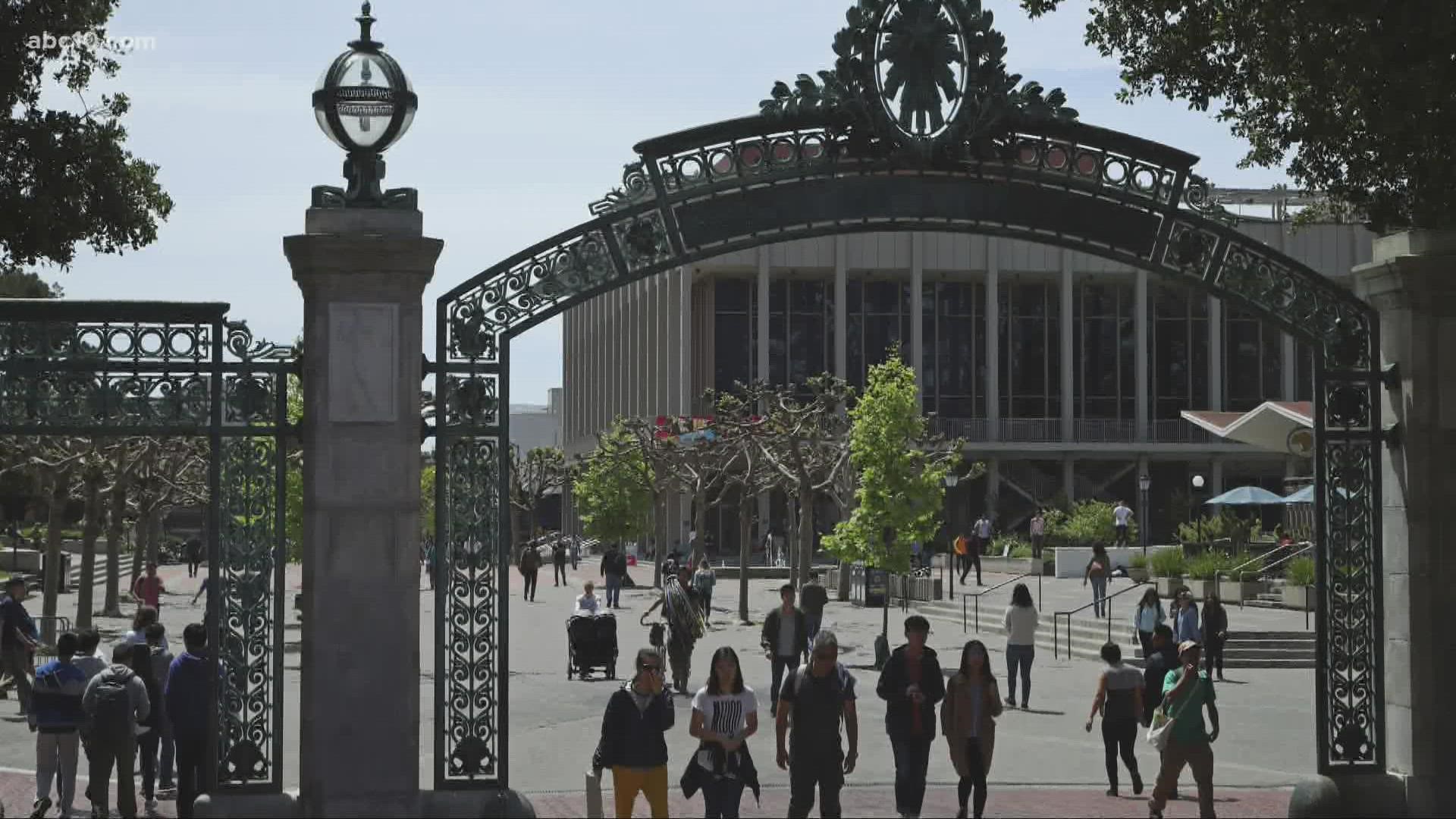SACRAMENTO, Calif. — Students in California and across the country received a letter saying UC Berkeley needs to cut back on enrollment because of a lawsuit.
Now many in high office, like Governor Gavin Newsom, are taking a side in the fight. Newsom is asking the CA Supreme Court to overturn the decision.
While this news is making headlines now, it’s been an ongoing legal battle for years, and a student with perfect grades, whose dream is to go to UC Berkeley, said he just wants it to be resolved already.
The legal battle started in 2018 with the first lawsuit.
“We sued the university because they had not examined the environmental impact of an enrollment increase. At that time, that was more than 8,000 students," said president of Save Berkeley's Neighborhoods Phil Bokovoy.
The judge ruled in the community organization's favor. UC Berkeley needed to determine what an enrollment increase meant for the environment. Was there enough housing? UC Berkeley appealed the decision.
"While that case was winding through the courts, the university proposed (another) housing project," Bokovoy said. "And they were actually going to evaluate an increase, but not the 8,000 that they'd already done, but a total of 11,000 over the previous study."
Bokovoy said he and Berkeley city attorneys wrote the university saying it was inappropriate to link the new housing project to the environmental impact review for the increase in student enrollment because they supported the housing project.
The judge ruled in the community organization's favor in 2021. UC Berkeley will cap its enrollment at the 2021 level.
"He said that until the university did a legally adequate, environmental analysis, they couldn't continue to increase enrollment," Bokovoy said.
Berkeley sent out this letter to students saying they’re going to appeal the most recent decision to the California Supreme Court, but if it fails, they will need to cut admissions by about 3,000 students and will lose $57 million in revenue.


“Berkeley was my dream school,” said Jaiden Kainoa, a student worried that he might get cut from the list of admissions.
He's trying to transfer into the university for the final time. His 4.17 GPA, AP classes and extracurriculars did not get him in the first time.
“I've been so dead set on it,” Kainoa said. "When something doesn't work out, you always can learn from what didn't happen and try to do something."
His mom said they’re staying out of the legal fight, but she would hate for her son to be the one affected by it.
“I'm more focused on the impacts of 1000s of kids," Kainoa's mom said. "These are young kids with big dreams, and they're our next generation. And to say you may not get in because of a lawsuit?”
Today, state Senator Scott Wiener unveiled a bill that would allow university and state schools to bypass the environmental reports altogether, known as the California Environmental Quality Act (CEQA).
How difficult is it to do a report? If Berkeley did it back in 2018, could they have avoided this drama?
“I can't speak for the university, but to comply with CEQA can be very lengthy and expensive. But again, fundamentally, the question is, should an environmental law be deciding how many college students the state of California can educate? The answer's no," Senator Wiener said. "This is not an environmental issue. This is an issue about the future of California and educating our young people.”
Weiner said he’s been working on this bill for five months, because even though the Berkeley news is just now making headlines, he said CEQA gets in the way of university’s building more housing all the time.
"CEQA requires state and local agencies to evaluate and disclose the significant environmental impacts of projects they approve and to avoid or mitigate those impacts if possible. CEQA is a critically important law that protects the environment from projects such as refineries that pollute natural resources and jeopardize health, especially for historically marginalized and underserved populations," he said. "However, the CEQA process is subject to appeals and lawsuits that can increase project costs and create delays for reasons completely unrelated to the environment. It’s not unusual for it to take three to four years and millions of dollars to resolve a single lawsuit."
WATCH ALSO:



















